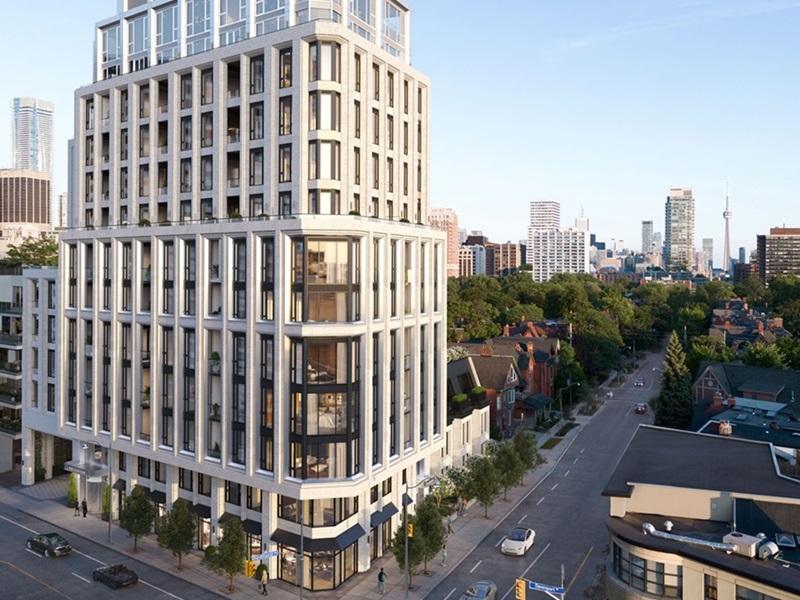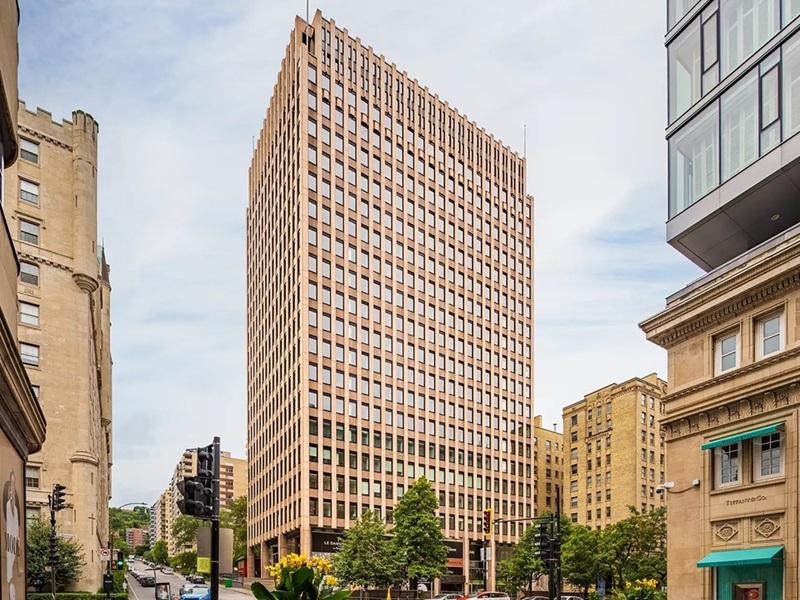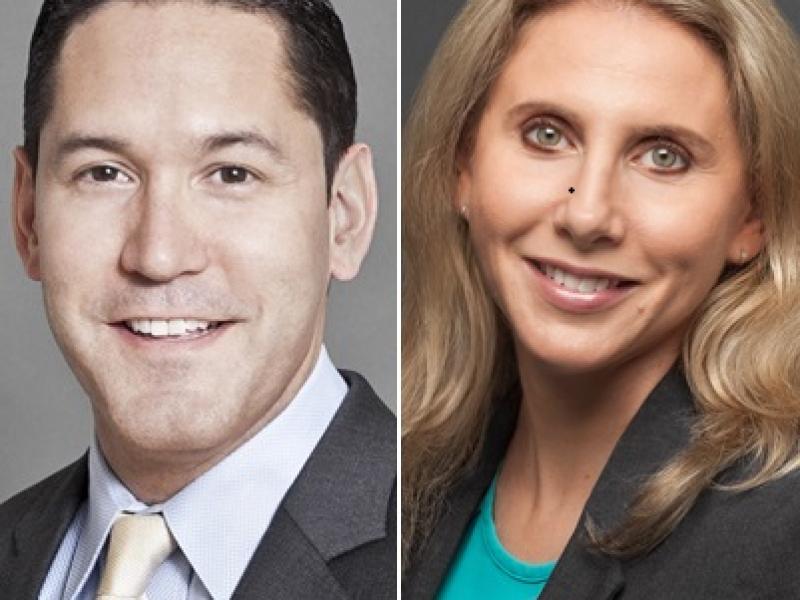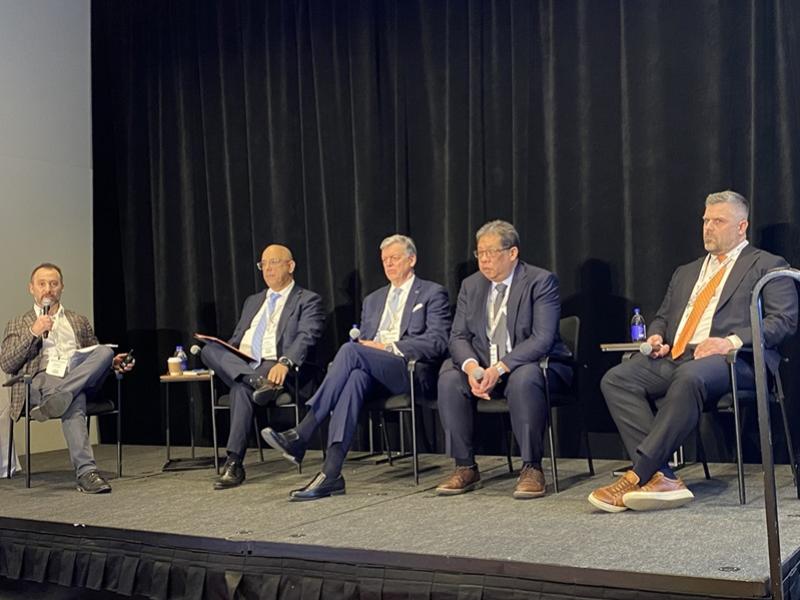
Centurion Apartment REIT made big news in Montreal in 2021, acquiring a portfolio of 30 apartment properties in the Greater Montreal Area. (Courtesy Centurion)
Last year was the “year of the suburbs” when it comes to apartment investment in Montreal and that situation should continue for the next two years, said James Palladino, managing director at RBC Capital Markets Real Estate Group in Montreal.
Institutional players who have always focused on downtown and other parts of the Island of Montreal shifted their focus to the suburbs in 2021, he said.
Palladino was speaking at the Quebec Apartment Investment Conference on March 23 during an update on investment trends and transaction activity in the province. The conference was held at Montreal’s convention centre for the first time in two years – it had previously been held virtually due to the pandemic.
Many Montreal suburbs saw record absorption rates, low vacancy rates and rental increases last year, he said. Institutional players now understand the suburban market complements the downtown market.
Marc Hétu, senior vice-president at CBRE and leader of its national apartment group in Quebec, noted Montreal saw 15 per cent of the Canadian apartment investment volume.
Toronto, Vancouver and Montreal represent 67 per cent of the major multiresidential transactions of $10 million or more in Canada, said Hétu, noting Montreal’s numbers for institutional investment continue to improve.
“Keen interest” in large Trigone portfolio
Palladino said the key apartment transaction last year was the Habitations Trigone portfolio for which Centurion Apartment REIT acquired a two-thirds interest.
The “exceptional” portfolio consisted of 30 newly built apartment buildings with 3,678 units in suburban Montreal.
Under the deal, Trigone maintained its investment in the properties while Fonds de Solidarité FTQ and Montez Corp. exited the venture.
“It was the first time we sold a portfolio of this size,” said Palladino. “We were really surprised by the keen interest of institutional investors” in the portfolio.
He said many institutional investors who would never have thought of investing in the suburbs of Montreal discovered the attractiveness of the suburban market because of this transaction.
Investors noticed occupancy rates and rental rates were increasing in the properties that comprise the portfolio and concluded it was a less risky proposition than many others.
After seeing the Trigone portfolio, institutional players were ready to buy Market, a 12-storey, 139-unit condo development at 3440 Saint-Elzéar Blvd. W. in Laval.
The newly built property was acquired by RioCan and marked the REIT’s first acquisition in Quebec. “For them, it’s a growing market,” said Palladino.
RioCan partnered with Pur Immobilia in the transaction. “What we see is that there are new players on the market who are ready to make partnerships and leave the management to somebody else,” he noted.
Renovated apartments more popular
There is also a move toward buying fully renovated properties, Palladino said, highlighting the acquisition of 37 Roosevelt Ave. in the suburban Town of Mont-Royal for about $13 million. The cost for the 22-unit building was about $600,00 per unit.
“Instead of buying the product and doing the work, all you have to do is keep it rented,” he said. “Clearly, people are ready to pay a premium for something that’s already renovated.”
Palladino added it will take time before new rental apartment starts are seen in downtown Montreal. During COVID, students left downtown, vacancy rates rose rapidly and rents dropped.
Today, construction costs are much higher than they were pre-pandemic and vacancy rates downtown remain high.
He predicts the supply of new rental product downtown will stagnate for three years. That’s the amount of time that will be needed for rents to sufficiently rise to make it worthwhile for developers to build new rentals.

Marc Hetu is a senior vice-president with CBRE, based in Montreal. (Courtesy CBRE)
Downtown Montreal “is not dead”
However, “the downtown market is not dead. It’s really on a short-term pause,” Palladino said.
Over time, vacancy rates downtown will decline and there should be a strong increase in rents in 2023 and 2024, which will allow developers to build multi-residential again.
Hétu agreed the sweet spot for new construction is in the suburbs and the situation is complicated for developers downtown: “It will take a few years before the pro forma works for future downtown development.”
Palladino added for institutional investors there is no risk premium for Montreal versus other big cities. “Everybody wants to invest in Montreal.”
The difference with Montreal is that returns are a bit lower because of rent control. “But when you talk to an investor, they’re happy to come to Montreal. They want to invest here.
“Nobody hesitates today to invest in Montreal.”
In addition, there is no language barrier for institutional investors, he said.
“Five, six years ago we had to educate people,” but institutional investors see there is no shortage of service suppliers available to help them.











